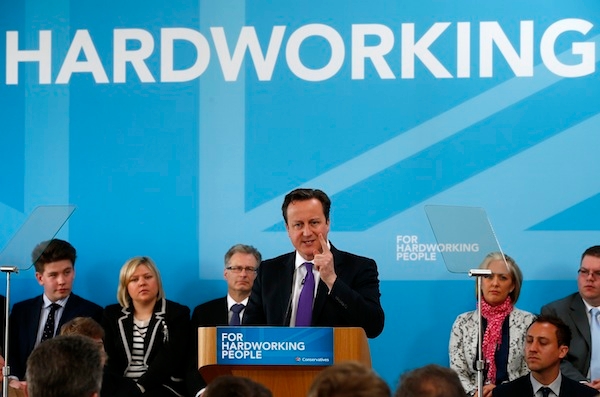As Britain gets fit for what David Cameron calls the ‘global economic race’, figures out this morning confirm Britain remains hamstrung by poor productivity.
UK productivity per hour has remained stagnant over the last year (having fallen by 1.76 per cent since 2008). When he eyed the competition at last week’s G8 summit, the Prime Minister will have clocked that only sclerotic Russia and stagnant Japan have worse productivity than the UK. According to a recent Office of National Statistics (ONS) review, Britain lags 16 percentage points behind the G7 average, 27 behind the US.
Ageing infrastructure and under-investment has blighted the oil and gas sector. Manufacturing productivity last year fell by 5.2 per cent – the biggest decline ever recorded by the ONS – while the value added by workers in London and the South East outshines those in the North (although the rate of start ups, there, offers a glimmer of hope).
So, how can we sharpen our competitive cutting edge? First, persevere in cutting the deficit, preferably even faster. Having ballooned 14 per cent under Labour, UK government spending still consumes almost half of national output – which weighs down the economy and stifles private sector dynamism, because public sector productivity is so poor. The spending review this week was another important step in the right direction, but we still need to do more. For a start, we could halve the number of separate Whitehall departments, while strictly enforcing public sector pay limits, saving £10 billion per year from bureaucracy.
Second, stop artificially keeping zombie firms – those in a debt rut – on life support with cheap Bank of England money. On one estimate, the number of zombie firms has reached 9 per cent of all UK businesses, and rising. This may have been regarded as the price of low unemployment during recession, but it now hampers the recovery. It prevents reallocation of resources to more productive enterprises – and deters banks from lending to more profitable start ups and expanding small businesses.
Third, while the coalition is wisely safeguarding infrastructure investment in rail, road and superfast broadband – crucial for long term productivity – we also need to bite the bullet and take a strategic decision on UK airport capacity, to draw in foreign investment and strengthen UK business connectivity.
Fourth, this government’s renewed emphasis on educational rigour – from strengthening numeracy and literacy, to curbing illusory grade inflation – is essential to plug the yawning skills gap Labour left behind. But, we also need to ditch the snobbery that says you have to go to university to be a success. As well as investing in vocational training, we should bring back Young Apprenticeships – for bright, rather than bookish, 14 to 16 year olds – that Tony Blair pioneered, but Ed Balls phased out as education secretary under Gordon Brown.
Fifth, we must hone Britain’s innovative edge. UK patents registered by the European Patent Office have declined by 6 per cent since 2005, compared to rises of 7 per cent in Germany, 13 per cent in the US, 28 per cent in France, and 35 per cent in Japan. Britain lies 15th on the international rankings for patents filed per person. Yesterday, the coalition announced additional capital funding for science. That is welcome, but bright ideas also need to be leveraged by business acumen. We could do worse than learn from Israel’s Technological Incubators Program, which provides venture capital through a partnership linking business, banks and government to give high-risk start-ups the chance to fly – without the state picking winners.
Sixth, incentivise stronger regional competition for innovation, picking up Boris Johnson’s idea of giving London greater freedom to spend the tax it raises and regulate local business. Extending fiscal autonomy would promote regional competition to attract investment, drive local innovation, and encourage longer-term planning at a local level.
If we address our weaknesses, Britain can turn productivity into a strength – and thrive in the fierce international economic contest that lies ahead.
Dominic Raab is the Conservative MP for Esher & Walton






Comments